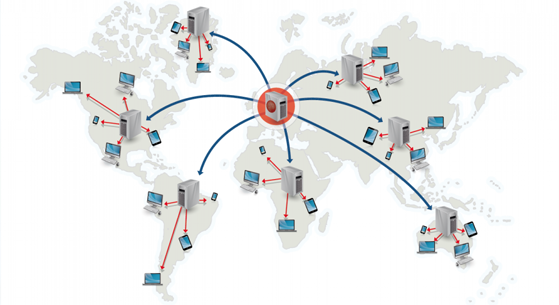According to a renowned Google Expert Mueller, many websites having the same IP does not really pose a problem. What however causes problems is when many sites have the same content. The problem came to the fore when discussions started to find out possible reasons why there could be a drop in web traffic when many sites had a common IP. Besides having a common IP, another point of concern was that the sites contained similar content and a duplicate structure. Mueller is of the opinion that as far as Google search goes, having the same IP should not be a threat. But, when content is the same and when websites are trying to attract buyers to similar products, there can be a problem.
How does Google tackle the problem of similar content on multiple sites?
In such a situation, what Google can do is to show the content from only one of the sites out of this set of “doorway” sites. Doorway sites of pages are typically the low quality web pages which have only the sole purpose of getting a high placement in any search engine rankings. This is largely a SEO technique for getting attention of search engine spiders and uses keywords that are most likely to be picked up by the web crawlers. Secondly, in case Google thinks that the similar-content websites are all doorway sites it can bring down all of their ranks. So, according to Mueller, it is imperative for the webmaster to focus on creating unique content instead of getting worked up about many sites having the same IP.
Mueller says that having a common IP for multiple sites has never posed any problem. Incidentally, there are many Content Delivery Network which use similar IP address for different websites and that never interferes with their performance. What can of course pose an issue is when you find that all the sites are just replicas of one another. This is when algorithms start to identify them as “doorway” sites. In the opinion of Matts Cutts who was the ex-head of spam team at Google, nearly 30% of total content which is found on the Internet is actually duplicate content. But users cannot see the other URLs containing duplicate content simply because they all have the same domain. So, web masters typically make use of conical tags and other methods for reorganizing websites and managing similar content on one domain. The Google algorithms have been programmed to sort through these but when filters are disabled; there are instances when many URLs dealing with the same content show up.

Similar content on different domains can also be a major issue. When there are two distinct websites you have two separate domains and at time, the same content on different sites becomes unavoidable. This happens when they re-publish blogs or press releases. If carried out in a proper way, this is not going to harm the site. But there are certain instances when same content on diverse domains can end up damaging your site. Some of these instances include stealing competitor’s content, or site scrapers reposting copied content or recycling content from one domain to another that you own or re-using product descriptions given by manufacturers.
What problems can you face because of duplicate content?
– Often the same content on different sites tries to compete for the same types of keywords. So, it becomes very difficult for the original website to get a high rank on the search engine results page. Google may detect this problem of duplication and demote all the duplicate sites.
– Back links are a key component of SEO and when you have other reputed sites offering links to your web page, your site gains credibility and authority. But, when any copycat site starts to use the same content, other sites will not link their pages to your site because they cannot be sure if this is original content.
– When there are duplicate product descriptions in different sites, consumers can get confused. So, they end up buying from some other store because of the mix-up.
– When you own all the content on different sites there is no threat of copyright infringement. But you will always face risk of reproduction. This is because content thieves will select content which has been duplicated already thinking that the owner is careless. So, when you steal phrases from competitors or use a fill-in template from them, you are at risk of a copyright lawsuit. Moreover, duplicate content from competitors’ sites will never describe your business to customers.
– When you have sites using duplicate content, they will rarely give any new or relevant information to clients. When users have gone through the content previously they click away and this increases bounce rate for your website. High bounce rates are undesirable as they can lower web page rankings.
– When the same content on multiple sites use similar keywords for similar topics, users will also find these side by side on any results page. So, the original cannot be identified and users cannot be sure which site is secure. So, they stay away from all duplicate sites.
The trick is to create few sites but make these strong and with unique content. This will never pose a threat to your site credibility.
For more info – How Many IP Addresses Can I Have






 Live Chat
Live Chat